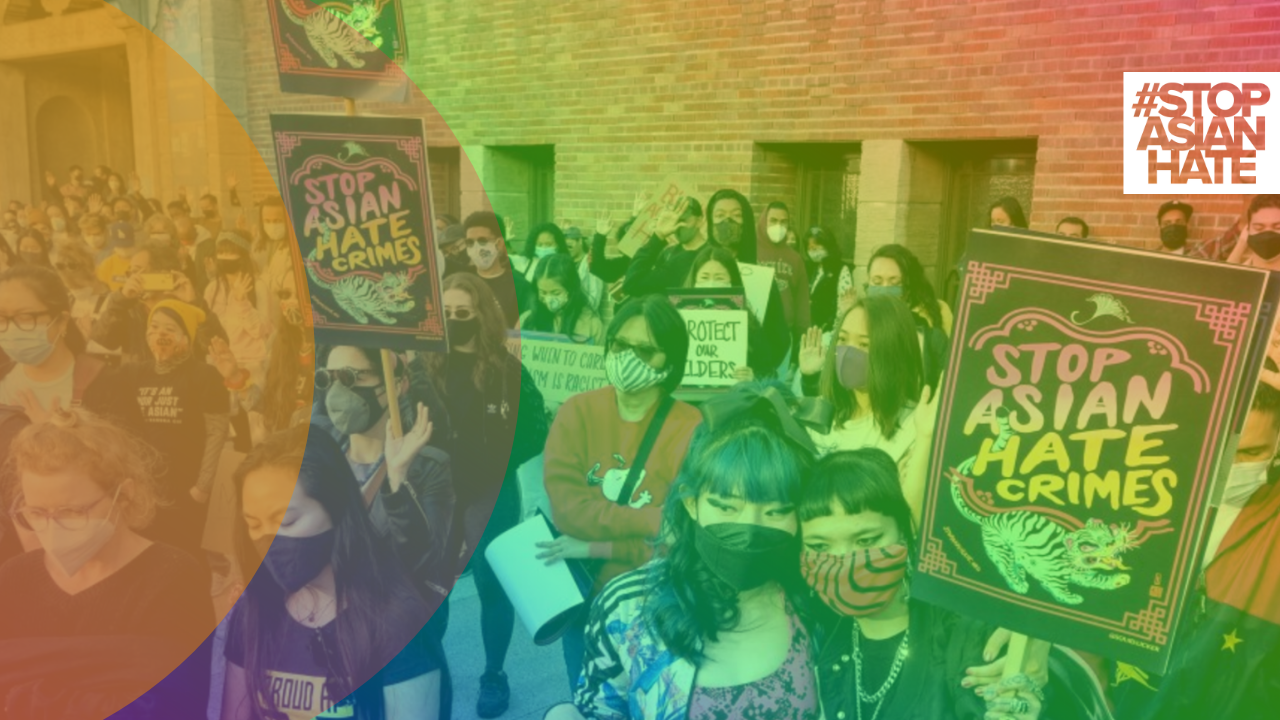
UE Statement in Response to the Atlanta Shooting and the Rising Violence Against Asian Americans
A year of sharply increased violence against Asians and Asian Americans reached a devastating mark in Tuesday’s mass shooting in Atlanta which claimed the lives of eight people, including six women of Asian descent.
Even as the shooter seeks to deny racial motivation, the fact is that he murdered six Asian American spa workers in clearly racist, serial acts of intersectional violence, intensifying fear and pain within Asian American communities across the US. In the words of Georgia State Representative Bee Nguyen, ”It was a brutal and violent crime in which racism, misogyny, gender-based violence, and lax gun laws intersect."
As educators, we are responsible, in the words of Ibram X. Kendi, for undoing racism by “consistently identify[ing] and describ[ing] it -- and then dismantl[ing] it.”
We thus call these murders what they are: atrocious, hateful, and racist acts that violate everything we stand for. And they are not isolated -- they represent deep-rooted, escalating racist violence. Recent reports document that hate crimes against Asian Americans in 16 cities rose by nearly 150 percent in 2020, according to a recent report from the Center for the Study of Hate and Extremism at CSU San Bernardino. The group Stop AAPI Hate’s annual report presents data on nearly 4,000 incidents of abuse in 2020. These attacks are fueled by the malicious hate speech that China is to blame for the COVID-19 pandemic, a position often asserted by former President Trump and his followers.
While COVID-19 may be the most recent motivation, none of this is new. Anti-Asian racism runs deep in the US: it spurred the deadly exploitation of 19th century railroad workers, the Chinese Exclusion Act, the Japanese internment during and following World War II, attacks on Asian Americans during and after the Korean and Vietnam wars, Orientalism in all its dehumanizing forms, the Harvard admissions controversy, and now blame for the pandemic are just a few examples.
White supremacy will always look to an external target in its endless search for blame and exclusion. We must recognize blind spots where violence against Asian Americans is concerned and actively seek to dismantle our own anti-Asian thoughts, perceptions and behaviors. We must not propagate the racist “model minority” attitude or assume that Asian Americans are not subjected to white supremacy.
If we claim to uphold the values of diversity, equity, and social justice, in education and in society at large, we must protect and defend our fellow Americans, and we must condemn violence against them with all our strength.
In Solidarity,
Undergraduate Education
- Office of the Vice Provost & Dean
- Academic Advising Enrichment
- Academic Planning and Special Initiatives
- Center for Educational Effectiveness
- Center for Leadership Learning
- First Year Seminars Program
- International & Academic English
- Summer Sessions
- Undergraduate Research Center
- University Honors Program
- Washington Program
Campus and External Resources
Take Action: Connect with organizations advocating for Asian American rights
We stand with Chancellor May and his message in support of the Asian-Pacific Islander community, and share the following resources:
- The Office of Diversity, Equity & Inclusion offers Racial Trauma Resources.
- Crisis Counseling for Students: If you are a current student and have been impacted by the murders in Atlanta, other hate crimes, or are in crisis, you can speak to a crisis counselor by calling Student Health and Counseling Services at 530-752-0871 and pressing 0.
- Students can also access the Student Health and Counseling Services Mental Health Resources.
- Counseling for Staff and Faculty: confidential, free counseling is offered through ASAP.
- Staff with concerns of harassment and discrimination can contact HDAPP to file a report and/or speak with a representative to better understand your options.
